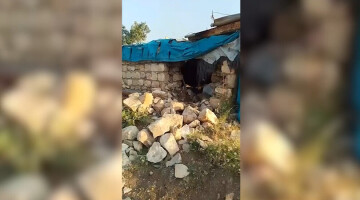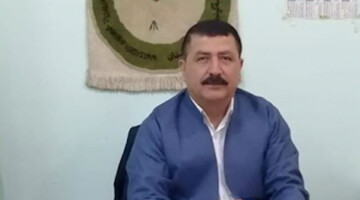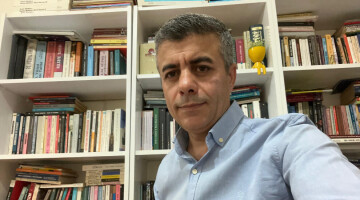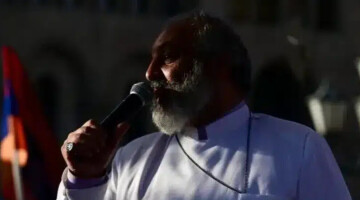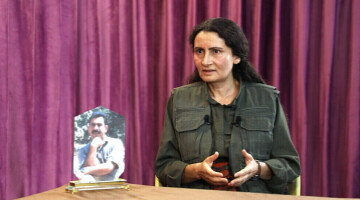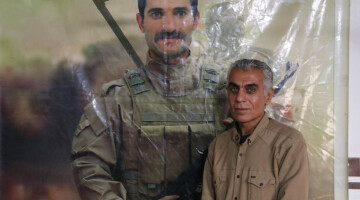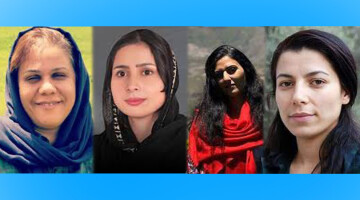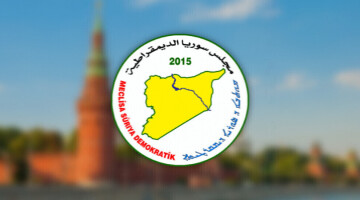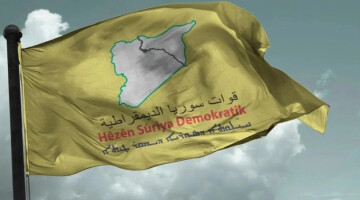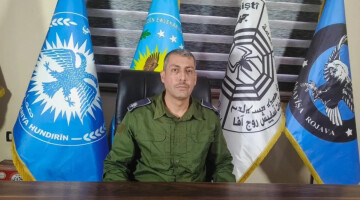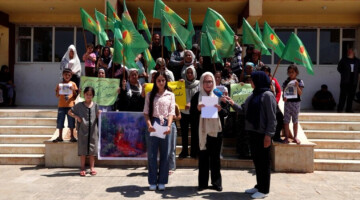The large-scale attack by the Islamic State on the Sina prison in Hesekê in January made it clear what a threat the islamic organization still poses. In this ANF interview, Aldar Xelîl from the co-executive board of the Democratic Unity Party (PYD) talks about developments in the fight against ISIS and the reasons why the danger persists.
What is the current status of the fight against ISIS in northern and eastern Syria?
The fight against ISIS continues in every respect. The Islamic State is a symbol of the war against the will of the people, against freedom, democracy and equality and a tool of forces like the Turkish state in their attacks on the region. Yes, thousands of its members have been killed, its military and political presence has ended, it no longer has territorial rule, but ISIS continues to exist. It has recently undergone an extensive reorganization. It created secret cell structures. The security forces in north-eastern Syria are fulfilling their duties against these structures, but need the highest level of support to protect the people in the region from the threat posed by ISIS.
Will the Turkish state's cooperation with ISIS continue?
The reality is obvious. Because everyone knows it is not even discussed. The Turkish state itself supports and organizes ISIS. It determines the actual plans of the Islamic State. It directly supports him to wreak havoc in this region with cruel methods. Entire regions from Afrin, Serêkaniyê, Girê Spî, Cerablus, Bab, Azaz to Idlib are occupied by the Turkish state. This is where these groups are organised, trained and settled. ISIS's self-proclaimed caliphs were spotted near Turkish bases and killed.
While ISIS is considered "terrorist" around the world, the Turkish state continues to work with it. What is the aim of this and why does the Turkish state dare to do this?
The world is silent. States are not at ease with the democratic revolution and the will of the people. Did the Turkish state invade Syrian territory alone? If the Turkish state had not acted in alliance with the international hegemonic powers, it would not have been able to occupy an inch of Syria. If these forces had not turned a blind eye, ISIS could not have advanced so far in Iraq and Syria. If they hadn't closed their eyes, the Turkish state would not have been able to set up ISIS training camps in Istanbul, Antep and northern Kurdish cities.
Why does this silence continue, especially with regard to what is happening in the occupied territories?
Afrin has been occupied for four years. A demographic change is being actively implemented. The population is expelled, arrests are made. Training camps were established for the mercenary groups, and their families were settled in the region. This is also happening in the other occupied territories. Doesn't anyone see that? This is about a state that supports and feeds terrorism and its system of cruelty. Killing ISIS leaders near Turkish bases does not end the danger. Those killed are quickly replaced. If it were really a question of eliminating ISIS, the Turkish state should be shown its limits. As long as the Turkish state and in particular the AKP/MHP are in power, ISIS will grow, reorganize itself again and again and endanger the entire region.
There is talk of an impending new Turkish invasion. Is something like this possible?
There are attacks against us every day. There are military, political, diplomatic and economic attacks. We are attacked at every level. I don't know when they will launch a new invasion, but we do know this: they will do everything they can to take revenge for the defeat of ISIS and to smash the developing democratic project, sow chaos among the peoples of the region and prevent the establishment of a democratic system. We're also trying to organize ourselves better and further develop our defense system.
During the attack in Hesekê, the Syrian regime issued statements accusing self-government. How are relations with the regime?
The Syrian regime does not seek a solution and does not accept dialogue. It looks at the problems from a distance and does not have concrete information. Nor has it decided on a solution. The regime may have given all sorts of explanations, but we do not take these past statements as a basis for our relation. We don't say, 'You made a statement like that, don't come to us anymore.' We don't make it a problem. We have to face the reality and the reality is that we all have to protect the country together. We must bring peace to this country.


